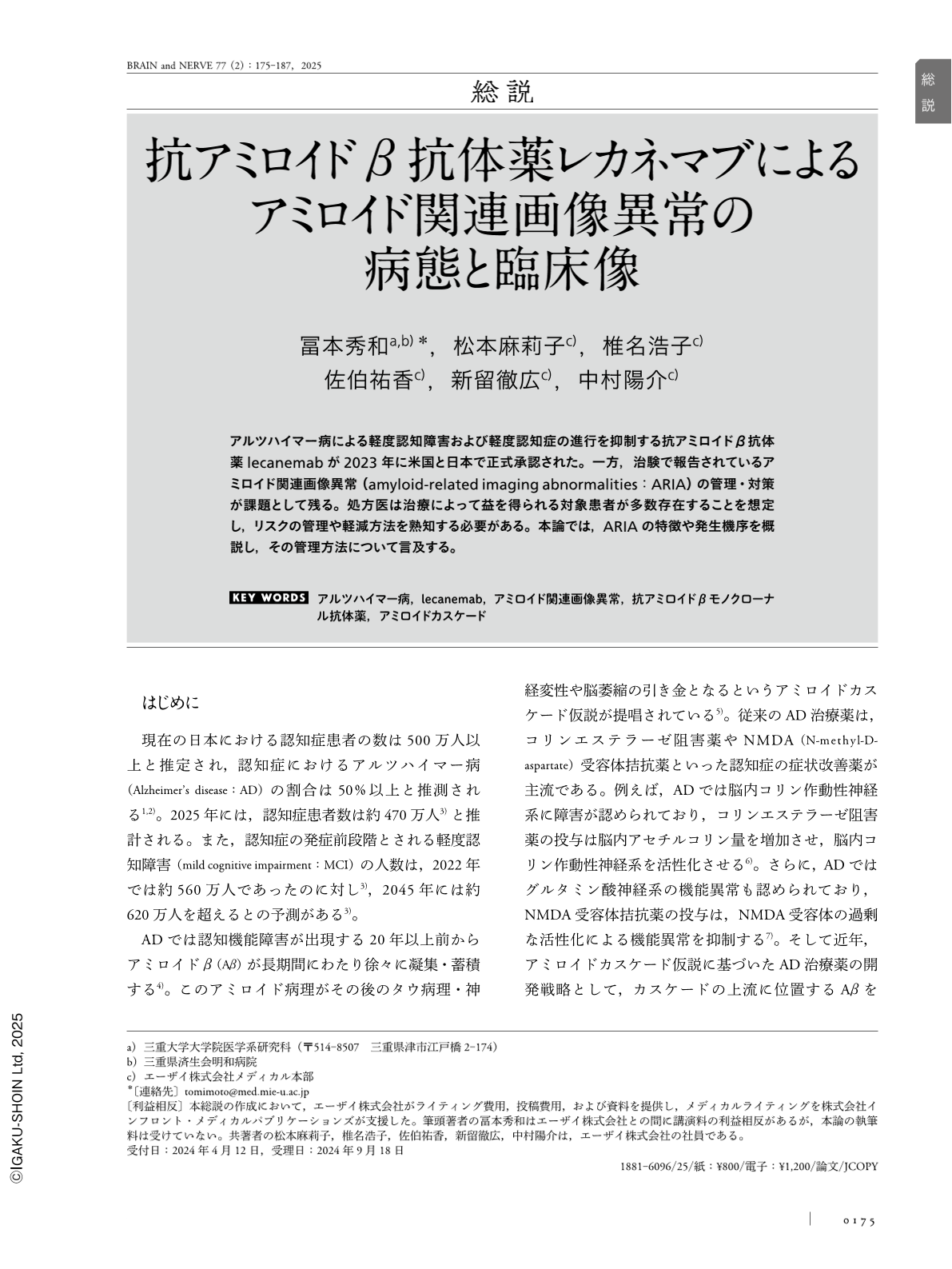Japanese
English
- 有料閲覧
- Abstract 文献概要
- 1ページ目 Look Inside
- 参考文献 Reference
アルツハイマー病による軽度認知障害および軽度認知症の進行を抑制する抗アミロイドβ抗体薬lecanemabが2023年に米国と日本で正式承認された。一方,治験で報告されているアミロイド関連画像異常(amyloid-related imaging abnormalities:ARIA)の管理・対策が課題として残る。処方医は治療によって益を得られる対象患者が多数存在することを想定し,リスクの管理や軽減方法を熟知する必要がある。本論では,ARIAの特徴や発生機序を概説し,その管理方法について言及する。
Abstract
Lecanemab, the first monoclonal antibody drug targeting amyloid beta (Aβ), was approved for slowing the progression of mild cognitive impairment (MCI) and mild dementia due to Alzheimer's disease (AD) in the United States and Japan. On the other hand, Amyloid-related imaging abnormalities (ARIA) has been reported in clinical trials, and its management and countermeasures remain a clinical issue. Given the large number of patients who is indicated of and would benefit from this type of AD therapy, physicians prescribing lecanemab should be familiar with how to appropriately manage and reduce the risks of ARIA. In this review, we outline the imaging characteristics and pathogenesis of ARIA that have emerged from the clinical trials and will also discuss risk factors and management protocol.
(Recieved April 12, 2024; Accepted September 18, 2024; Published February 1, 2025)

Copyright © 2025, Igaku-Shoin Ltd. All rights reserved.


